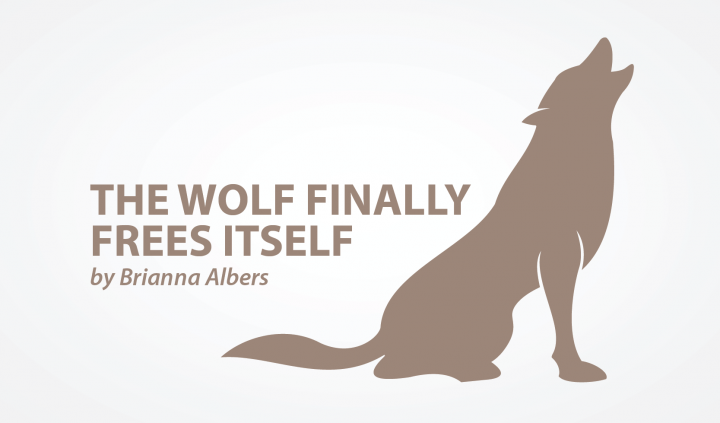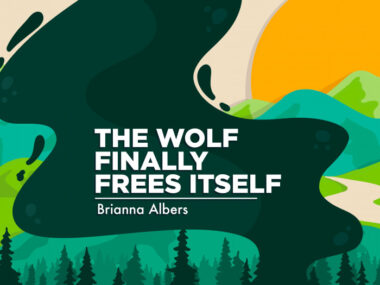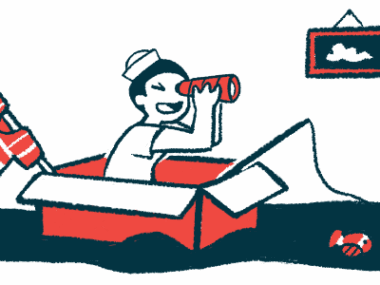Taking Pride in My Disability Is a Revolutionary Act
Written by |

Many, many years ago, I gave a presentation on the Americans with Disabilities Act (ADA) of 1990. I was in middle school at the time, and was hopelessly devoted to the concept of “normalcy.” I wanted more than anything to fit in. To live a different life, with cliques and sleepovers and overt hand-holding in the hall. I wanted my version of “A Cinderella Story,” complete with love confessions and kisses in the rain.
I was, of course, abnormal. It didn’t matter what stores I shopped at, or the frequency with which I updated my profile picture on Facebook. I was disabled. And disabled girls were relegated to the “handicap accessible” wings of gymnasiums and concert arenas. Disabled girls sat beneath the bleachers with their paraprofessionals so they wouldn’t die of pneumonia. High school football players did not cross the playing field to kiss disabled girls in the pouring rain.
Junior high is a tumultuous time as is. So you can imagine the kind of stress I was under — wanting to be normal, eschewing anything and everything that set me apart. To my 13-year-old brain, “disabled” was a bad word. “Disabled” represented all that I hated about myself. “Disabled” was a barrier, keeping me from achieving my happily ever after.
That presentation on the ADA was a turning point for me. I didn’t magically forgive myself for being disabled. But I did take interest in disability culture for the first time in my life. I crafted my poster board with loving intention. I was a teacher’s pet, so school projects were essentially the center of my universe, but I remember feeling especially proud of that presentation. It wasn’t an arbitrary topic that I fished out of a hat. It was part of me. And it was badass — from the activists who fought for disability rights to the legislation that required accessibility.
I find it fitting that my introduction to disability culture is the beating heart of Disability Pride Month. We celebrate disability pride throughout the month of July in honor of the ADA, which was ratified in July of 1990.
Disability pride is, of course, a complex subject. Some people are in favor, while others struggle to celebrate something with such a resoundingly negative impact. Personally, I’m somewhere in the middle.
I love disability pride. I prefer identity-first language and am proud to be disabled. In my view, there is freedom in owning it, in embracing this complicated and messy aspect of my everyday life. But I recognize that some people are uncomfortable with the concept of disability pride. And that’s OK! The diversity of our community is a strength.
I also recognize that disability pride can distract us from the marginalization and oppression of disabled folks around the world. I love the ADA. I think the ADA is worth celebrating, as are the achievements of all the activists that came before us. But justice work is never done. Disabled people of color still face multiple levels of discrimination. Accommodations promised by the ADA are rarely seen in the real world. The ADA champions the employment of disabled people, but statistics suggest that only 19.3 percent of people with a disability are employed in the U.S. In fact, it is still legal to pay people with disabilities subminimum wage.
Justice work is never done, but celebrating our accomplishments is crucial to sustaining the movement. To me, Disability Pride Month is an opportunity to honor the lived experience of disabled folks. To me, Disability Pride Month is an opportunity to bless myself — my heart, my holy anger, my hope for all the disabled kiddos out there who are waiting for their storybook ending.
Disability Pride Month stands as witness to my love — for myself, for you, for people born disabled and people that will become disabled throughout the course of their lives. Even my fickle, on-again, off-again love for able-bodied folks who live in fear of what we represent.
The truth is this: We are creative and strong and imperfect and stubbornly, stupidly hopeful. We are visionaries. And Disability Pride Month invites people from all walks of life to help us create something beautiful.
Will you join us?
***
Note: SMA News Today is strictly a news and information website about the disease. It does not provide medical advice, diagnosis, or treatment. This content is not intended to be a substitute for professional medical advice, diagnosis, or treatment. Always seek the advice of your physician or other qualified health provider with any questions you may have regarding a medical condition. Never disregard professional medical advice or delay in seeking it because of something you have read on this website. The opinions expressed in this column are not those of SMA News Today, or its parent company, Bionews Services, and are intended to spark discussion about issues pertaining to spinal muscular atrophy.




Leave a comment
Fill in the required fields to post. Your email address will not be published.